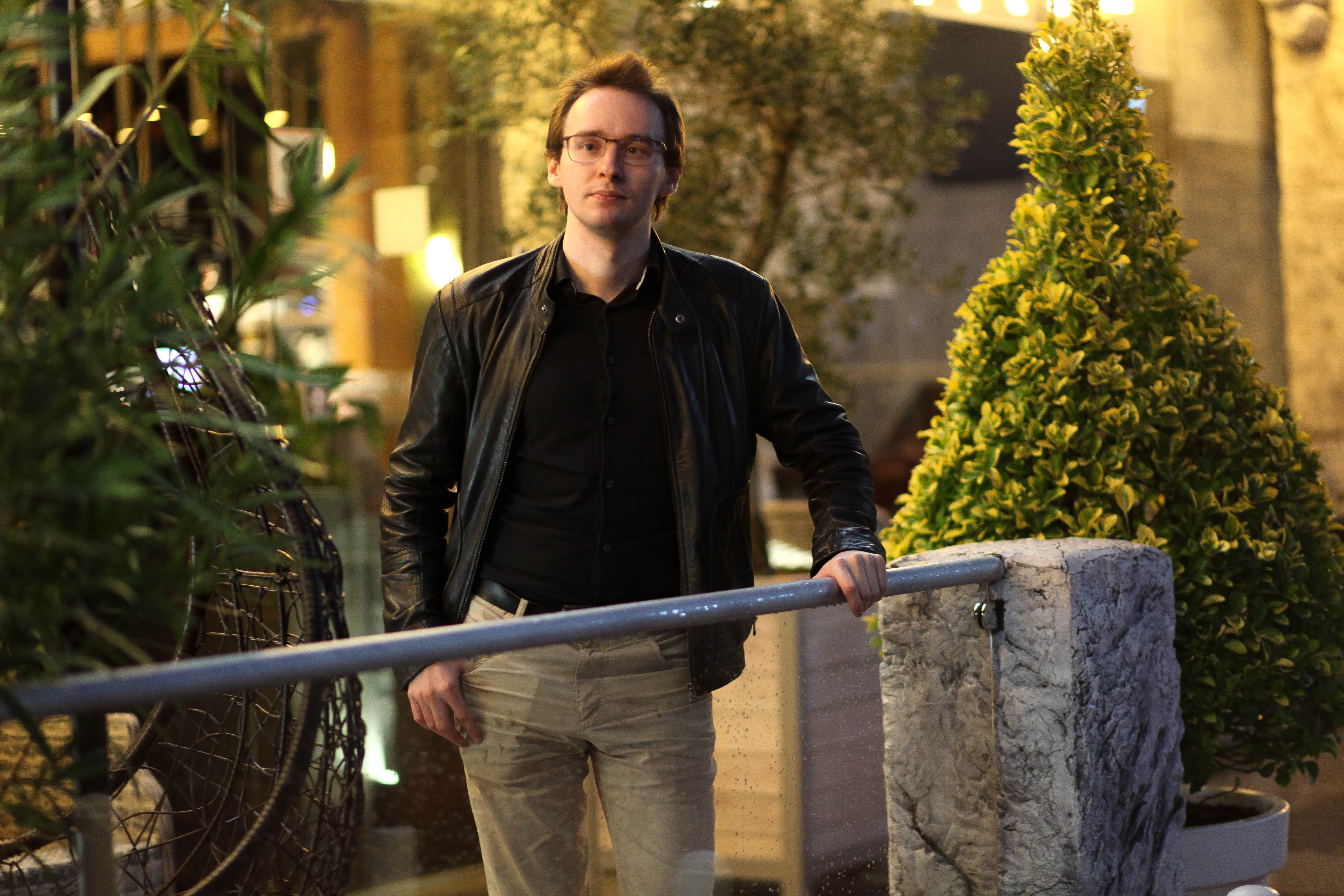5 Common Career Mistakes and How to Avoid Them
The quiet mistakes that cost you years. The patterns you can't see from inside your own career. The course corrections you wish you'd made sooner.

I need to tell you about the mistake I see most often.
Not the technical ones—those are easy to spot and fix. I'm talking about the quiet ones. The ones that happen slowly, over years, until one day you wake up and realize you've been standing still while everyone else kept moving.
The mistakes that cost you time you can't get back.
Let me introduce you to five people. Their names are different, but if you're honest, you might see yourself in their stories. I know I did.
Here's what they learned the hard way—so you don't have to.
Mistake #1: Staying Too Long Because It's Comfortable
Emma's Story: The Golden Handcuffs
Emma was a senior engineer at a comfortable mid-sized company. Good salary. Flexible hours. A team that liked her. Her manager said "great work" in every review. For five years, she showed up, did solid work, and went home at 5:30pm.
Sounds nice, right?
Except Emma told me she started feeling this low hum of dread every Sunday evening. Not because her job was bad. Because it had stopped being anything at all. It was just... there. Comfortable. Safe. Utterly forgettable.
"I kept telling myself I was lucky," she said. "I had friends who hated their jobs. Mine was fine. What was I complaining about?"
But here's what "fine" cost her: five years of learning nothing new. Five years of not growing. Five years where her resume looked exactly the same at the end as it did at the beginning. When she finally started interviewing, recruiters kept asking: "What have you been working on recently?" And she didn't have an answer that excited even her.
The mistake wasn't staying. It was staying past the point where she stopped growing—because leaving felt scary and staying felt easy.
What Emma wishes she'd known:
Comfort is expensive. You pay for it with time and growth you'll never get back. The question isn't "Is this job good enough?" It's "Am I becoming who I want to be here?"
When her mentor asked her that question, Emma went quiet. Then she started crying. Not sad tears—recognition tears. She'd known the answer for two years. She'd just been afraid to admit it.
She left six months later. Took a role that scared her a little—a smaller company, more responsibility, technologies she'd have to learn. Last I heard, she's a tech lead now. Different person. Same human who was always there, just... awake again.
The Real Cost of Comfort
It's not the salary you miss. It's the version of yourself you never became because you were too afraid to be uncomfortable for a while.
How to avoid this mistake:
Ask yourself every six months: "Am I learning? Am I growing? Am I challenged?" If the answer is no for three cycles in a row, it's time to have an honest conversation with yourself about why you're still there. A mentor won't tell you to quit. They'll help you see what you're trading for that comfort—and whether the trade is worth it.
Mistake #2: Being Too Humble to Advocate for Yourself
David's Story: The Invisible Engineer
David was brilliant. I mean, genuinely exceptional at what he did. He'd fixed critical bugs that saved his company hundreds of thousands of dollars. He'd mentored half the junior engineers. He'd redesigned a system that everyone said was unfixable.
And he was still at the same level after four years.
When I asked him why he hadn't been promoted, he looked surprised by the question. "I just do my work," he said. "I figured if I was good enough, they'd notice."
Here's the thing about being noticed: it doesn't happen by accident. Not because the world is unfair—though sometimes it is—but because everyone is busy. Your manager has twelve other people to think about. Your VP doesn't know you exist. The projects you've saved live in Jira tickets no one reads.
David thought advocating for himself was arrogant. So he stayed quiet. While other engineers—good engineers, but not better than him—made sure their wins were visible. They sent summary emails. They presented at all-hands. They said "I did this" instead of "we accomplished that."
What David wishes he'd known:
Humility is a virtue. Invisibility is a choice—and it's one that will cost you the career you deserve.
His mentor told him something that changed everything: "You're not bragging. You're translating your work into language leadership understands. That's your job too."
David started doing weekly summaries. Nothing fancy—just "Here's what I shipped, here's the impact, here's what I'm working on next." Six months later, he was promoted. Not because his work got better. Because his work finally became visible.
The Humility Trap
You think staying quiet is modest. But when you don't advocate for yourself, you're not being humble—you're making it impossible for anyone to fight for you.
How to avoid this mistake:
Document your wins. Not for ego—for memory. When review season comes, you won't remember half of what you did. Neither will your manager. A mentor helps you see the difference between bragging and advocating. One is about you. The other is about making sure your impact isn't invisible.
Which mistake are you making right now?
Don't wait three years to course-correct. Get help seeing what you can't see from inside your own career.
Mistake #3: Chasing the Next Title Instead of the Right Growth
Lena's Story: The Hollow Promotion
Lena got promoted to senior engineer at 26. Staff engineer at 28. She was on track to be a principal engineer before 30.
And she was miserable.
"Everyone kept congratulating me," she told me. "And I kept smiling and saying thank you. But inside, I felt empty. Like I was climbing a ladder I didn't even want to be on."
The mistake wasn't ambition. The mistake was chasing titles because they looked good on LinkedIn, without ever asking: "What do I actually want to be doing with my days?"
At her staff engineer level, Lena spent most of her time in meetings, writing design docs, and reviewing other people's code. She barely wrote code anymore. The thing that made her fall in love with engineering—building things, solving puzzles, that flow state when you're deep in a problem—was gone.
What Lena wishes she'd known:
Titles don't make you happy. Doing work that lights you up makes you happy. Sometimes those things align. Often they don't.
Her mentor asked her a question that broke her: "If no one ever knew your title, what would you want to be doing?"
Lena went quiet. Then: "Building things. Teaching people how to build things. Being in the code, not just talking about it."
She ended up taking a lateral move to a different team where she could code more and mentor juniors. Technically a "step back." Actually a step toward herself.
The Title Trap
You can win the race up the ladder and realize you climbed the wrong wall. No amount of success at something you don't want matters.
How to avoid this mistake:
Before you say yes to the next promotion, ask: "What will my days actually look like?" If that picture doesn't excite you, the title won't either. A mentor helps you see the difference between the career path you're "supposed" to want and the one that actually fits who you are.
Mistake #4: Burning Bridges or Forgetting to Build Them
Carlos's Story: The Exit That Echoed
Carlos was furious when he quit.
His manager had passed him over for promotion—again. He'd been promised resources that never came. He'd carried a project that should have been a team effort. So when he got an offer from another company, he quit with two weeks notice and spent those two weeks... making his feelings known.
He told his team exactly what he thought of management. He sent an exit email that was, in his words, "brutally honest." He ghosted the farewell happy hour. He wanted everyone to know: this place didn't deserve him.
The problem? Tech is small. Smaller than you think.
Two years later, Carlos interviewed at his dream company. The hiring manager asked for references. One of the names Carlos gave? Someone who'd been on his old team. Someone who remembered the exit. He didn't get the job.
What Carlos wishes he'd known:
You can be angry. You can be hurt. You can absolutely leave a bad situation. But how you leave echoes longer than you think.
His mentor told him: "You don't owe them your future, but don't give them your past as a weapon either."
The Bridge You Burn
It's never the bridge you think it is. The one you torch in anger might be the one you need to cross three years from now.
How to avoid this mistake:
Leave professionally even when you're leaving painfully. You can be honest in your exit interview without being cruel. You can set boundaries without burning cities. And on the flip side: build relationships before you need them. The best network is the one you built when you didn't need anything. A mentor helps you navigate exits with grace and teaches you that networking isn't transactional—it's human connection over time.
Mistake #5: Waiting for the "Perfect Time" That Never Comes
Rachel's Story: The Perpetual Preparation
Rachel wanted to switch from backend to machine learning. She'd wanted it for three years.
Three years of "I'll do it when..."
- "When I finish this Coursera specialization."
- "When I have six months of savings."
- "When the project at work calms down."
- "When I feel more confident."
Every time I talked to her, there was a new reason to wait. Always reasonable. Always logical. Always... safe.
The problem? None of those conditions were ever fully met. The specialization led to another specialization. Six months of savings felt like it should be eight. Work never calmed down. Confidence never arrived on its own.
What Rachel wishes she'd known:
Perfect timing is a myth you tell yourself to avoid the discomfort of starting before you feel ready.
Her mentor finally asked her: "What if you're as ready right now as you'll ever feel before you start?"
That question sat with Rachel for a week. Then she applied to three ML roles—not because she felt ready, but because she realized she never would.
She got one of them. Was she prepared? No. Did she learn faster in six months than she had in three years of courses? Yes.
The Timing Trap
There will never be a perfect time. There will only be the time when you stop waiting and start moving.
How to avoid this mistake:
Ask yourself: "What's the smallest, scariest step I could take this week?" Not the perfect step. Not the fully-prepared step. Just the next one. A mentor won't push you off the cliff. They'll help you see that the cliff is actually three feet tall, and you've been standing at the edge for years, imagining it's a mountain.
The Mistake Beneath All the Mistakes
Here's what these five stories have in common: Each person knew something was wrong. Emma felt the Sunday dread. David noticed others getting promoted. Lena felt the emptiness. Carlos carried the anger. Rachel kept finding reasons to wait.
They all knew.
The mistake wasn't not knowing. It was not having someone to help them see what they already knew—and give them permission to act on it.
That's what mentorship does. It doesn't tell you what to do. It helps you hear yourself more clearly. It turns "I think something's wrong" into "Here's what's actually happening" into "Here's what I'm going to do about it."
The pattern is always the same: You drift or settle or wait. Time passes. One day you look up and realize you're three years into a mistake you saw coming but didn't know how to stop.
What This Means for You, Right Now
Maybe you see yourself in one of these stories. Maybe all of them.
If Emma's comfort trap sounds familiar—if you've been in the same role for years and can't remember the last time you learned something that excited you—you're not stuck. You're just scared to be uncomfortable. A mentor can help you see what that comfort is actually costing you.
If David's invisibility resonates—if you're doing great work that no one seems to notice—you're not bad at your job. You're just bad at making your job visible. A mentor can help you translate your impact into language that gets heard.
If Lena's title chase feels too close—if you're climbing but not sure why—you're not ungrateful. You're just on the wrong ladder. A mentor can help you figure out which wall you actually want to climb.
If Carlos's burned bridges make you wince—if you've left situations poorly or neglected relationships you now need—you're not doomed. You're just learning late. A mentor can help you rebuild and show you how to exit next time with grace.
If Rachel's perpetual preparation describes your life—if you've been getting ready to start for months or years—you're not a procrastinator. You're just waiting for a confidence that only comes from starting. A mentor can help you take that first scary step.
These aren't character flaws. They're navigation errors. And navigation errors aren't fixed by trying harder. They're fixed by getting better maps and someone who can read them with you.
The Mistake You're Making Right Now
Here's the mistake I haven't mentioned yet: reading this and nodding and doing nothing.
Recognizing these patterns is step one. But recognition without action is just well-informed stagnation.
You can spend another year in Emma's comfortable trap. Another year invisible like David. Another year chasing the wrong thing like Lena. Another year burning bridges like Carlos. Another year preparing like Rachel.
Or you can decide: I've seen this pattern in myself. I know where it leads. I'm going to do something different.
That's the choice. Not whether to be perfect. Whether to start.
Every person in these stories waited too long. Not because they didn't know better. Because knowing better doesn't give you courage. It just makes you feel guilty while you stay stuck.
What gave them courage was having someone say: "I see you. I've been there. Here's the way forward. You're not alone in this."
That's what mentorship is. Not avoiding mistakes—because you won't. Making them faster, learning faster, course-correcting before three years become five become ten.
Meet Mentors Who've Made These Mistakes—and Fixed Them
Engineers who learned the hard way so you don't have to. Real experience. Real empathy. Real humans who remember what it's like to feel stuck.

Mikhail Dorokhovich
Founder
Full-Stack Development, System Architecture, AI Integration
Founder of mentors.coach. Full-stack engineer with 9+ years of experience building scalable platforms, mentoring teams, and shaping modern engineering culture. Passionate about mentorship, craftsmanship, and helping developers grow through real projects.
Specialties:

Gaberial Sofie
Co-Founder & HR Partner
Talent Development, Team Culture, HR Strategy
Co-founder and people-focused HR professional with a background in organizational psychology. Dedicated to building compassionate, high-performing teams where mentorship and growth come first.
Specialties:

George Igolkin
Blockchain Developer
Smart Contracts, DeFi, Web3 Infrastructure
Blockchain engineer passionate about decentralized systems and secure financial protocols. Works on bridging traditional backend systems with modern blockchain architectures.
Specialties:

Valeriia Rotkina
HR & Career Coach
Human Resources, Learning Programs, Career Education
HR specialist and educator with a focus on personal development and emotional intelligence. Helps professionals find clarity in their career path through structured reflection and goal-setting.
Specialties:

Kristina Akimova
HR Strategist
Recruitment, Employer Branding, Team Well-Being
HR partner dedicated to fostering healthy team dynamics and building inclusive hiring processes. Experienced in talent acquisition and communication strategy for growing tech companies.
Specialties:
Which Mistake Are You Making Right Now?
Stop spending years on patterns you can't see from inside. Get help course-correcting before another year passes.
The smartest people aren't the ones who never make mistakes. They're the ones who stop making the same mistake for years.